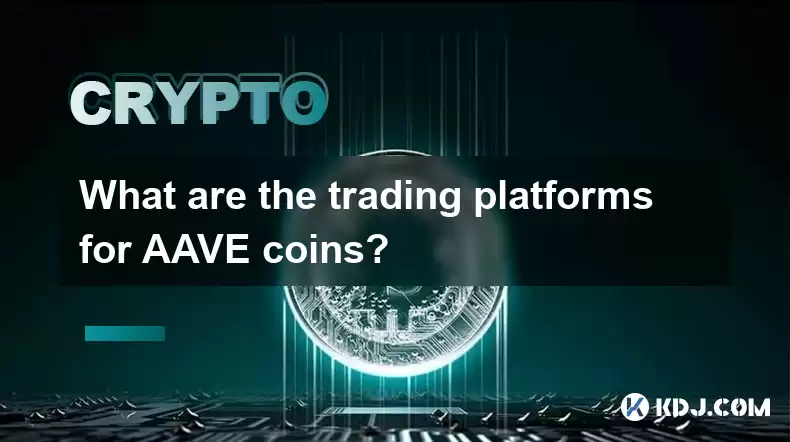-
 Bitcoin
Bitcoin $115200
-2.68% -
 Ethereum
Ethereum $3601
-5.16% -
 XRP
XRP $3.035
-2.96% -
 Tether USDt
Tether USDt $0.9997
-0.04% -
 BNB
BNB $764.5
-5.43% -
 Solana
Solana $168.1
-5.92% -
 USDC
USDC $0.9998
-0.02% -
 Dogecoin
Dogecoin $0.2090
-4.80% -
 TRON
TRON $0.3272
-0.49% -
 Cardano
Cardano $0.7306
-5.00% -
 Hyperliquid
Hyperliquid $39.16
-12.22% -
 Stellar
Stellar $0.3967
-4.96% -
 Sui
Sui $3.566
-5.95% -
 Chainlink
Chainlink $16.55
-6.57% -
 Bitcoin Cash
Bitcoin Cash $552.3
-3.90% -
 Hedera
Hedera $0.2516
-4.69% -
 Avalanche
Avalanche $21.99
-5.75% -
 Toncoin
Toncoin $3.621
-0.28% -
 Ethena USDe
Ethena USDe $1.000
-0.03% -
 UNUS SED LEO
UNUS SED LEO $8.951
0.02% -
 Litecoin
Litecoin $105.9
-3.59% -
 Shiba Inu
Shiba Inu $0.00001232
-5.00% -
 Polkadot
Polkadot $3.640
-5.55% -
 Uniswap
Uniswap $9.048
-7.03% -
 Monero
Monero $301.8
-1.51% -
 Dai
Dai $0.9999
-0.01% -
 Bitget Token
Bitget Token $4.334
-3.66% -
 Pepe
Pepe $0.00001064
-6.17% -
 Cronos
Cronos $0.1367
-5.78% -
 Aave
Aave $259.2
-4.59%
What are the trading platforms for AAVE coins?
Binance, a leading centralized exchange with vast liquidity, low fees, and advanced security, is a popular platform for trading AAVE coins.
Dec 29, 2024 at 07:46 am

Key Points:
- Understand Different Types of Trading Platforms: Centralized vs. decentralized, their features and advantages.
- Explore Centralized Exchanges: Binance, Coinbase, Gemini, Kraken, and Huobi Global, their offerings, fees, and security.
- Discover Decentralized Exchanges: Uniswap, SushiSwap, Curve, and Balancer, their unique features, liquidity, and trading mechanisms.
- Consider Hybrid Exchanges: Binance DEX and FTX.US, combining the features of both centralized and decentralized exchanges.
- Evaluate Wallets and Security Measures: Hardware wallets, software wallets, and security best practices for storing your AAVE coins.
Trading Platforms for AAVE Coins:
1. Centralized Exchanges
Centralized exchanges (CEXs) act as intermediaries between buyers and sellers, facilitating secure and efficient trading of cryptocurrencies. They offer:
- User-friendly interface: Simple and intuitive platforms, making them accessible for beginners.
- High liquidity: Large trading volumes, ensuring quick execution of orders.
- Fiat on-ramps: Support for depositing and withdrawing funds using fiat currencies like USD or EUR.
- Advanced trading tools: Charting capabilities, order types, and margin trading options for experienced traders.
- Security measures: Implement industry-leading security measures such as two-factor authentication and cold storage.
Popular Centralized Exchanges for AAVE Trading:
- Binance: The world's largest cryptocurrency exchange, offering a vast selection of cryptocurrencies, low fees, and solid security.
- Coinbase: A reputable exchange focused on security and compliance, suitable for beginners and institutional investors.
- Gemini: Known for its high security standards, stringent regulations, and a user-friendly platform.
- Kraken: A well-established exchange offering a wide range of cryptocurrencies, low trading fees, and advanced trading features.
- Huobi Global: A global exchange with a strong presence in Asia, offering a variety of cryptocurrencies and trading tools.
2. Decentralized Exchanges
Decentralized exchanges (DEXs) operate on a peer-to-peer network, eliminating the need for intermediaries. They provide:
- Transparency: Transactions are recorded on a public blockchain, providing transparency and auditability.
- Non-custodial: Users maintain control over their private keys, reducing the risk of theft or loss.
- Wide range of tokens: Offer access to a wider variety of tokens that may not be listed on CEXs.
- Innovative trading mechanisms: Utilize automated market makers (AMMs) to facilitate trading without order books.
- Lower fees: Typically charge lower trading fees compared to CEXs, as there are no intermediaries involved.
Popular Decentralized Exchanges for AAVE Trading:
- Uniswap: The largest DEX, known for its simplicity, liquidity, and wide range of tokens.
- SushiSwap: A fork of Uniswap with additional features such as yield farming and token governance.
- Curve: Specialized for stablecoin trading, offering tight spreads and efficient liquidity.
- Balancer: A more advanced DEX, allowing for the creation of custom liquidity pools and sophisticated trading strategies.
3. Hybrid Exchanges
Hybrid exchanges combine features of both CEXs and DEXs, offering a unique blend of security, liquidity, and decentralization. They:
- Centralized core: Utilize a central authority to ensure regulatory compliance and security.
- Decentralized functionality: Incorporate DEX-like features such as non-custodial trading and access to a broader range of tokens.
- Reduced fees: Often charge lower fees compared to CEXs, leveraging the advantages of DEX architecture.
Popular Hybrid Exchanges for AAVE Trading:
- Binance DEX: The decentralized arm of Binance, offering a secure and high-performance trading platform.
- FTX.US: The US-based arm of FTX, providing a user-friendly interface and competitive fees.
4. Wallets and Security
Securely storing your AAVE coins requires using a reliable wallet. Consider the following:
- Hardware wallets: Physical devices that store your private keys offline, providing the highest level of security.
- Software wallets: Digital applications that store your private keys on your computer or smartphone, offering convenience but reduced security.
- Security measures: Implement best practices such as strong passwords, two-factor authentication, and avoiding storing large amounts of cryptocurrencies in exchanges.
FAQs:
Q: How do I choose the best trading platform for AAVE coins?
A: Consider factors such as security, ease of use, liquidity, trading fees, and features that align with your trading needs.
Q: What are the advantages and disadvantages of centralized exchanges?
A: Advantages: User-friendly, high liquidity, fiat on-ramps, security measures. Disadvantages: Custodial nature, potential for censorship or market manipulation.
Q: Why might I use a decentralized exchange for AAVE trading?
A: Benefits include transparency, non-custodial control, access to a wider range of tokens, lower fees, and permissionless trading.
Q: Is it safe to store my AAVE coins in a hardware wallet?
A: Hardware wallets offer the highest level of security for storing your private keys and cryptocurrencies offline, protecting them from hacks and malware.
Q: How can I protect my AAVE coins from theft or loss?
A: Implement security measures such as strong passwords, two-factor authentication, and diversifying your storage using a combination of hardware wallets and software wallets.
Disclaimer:info@kdj.com
The information provided is not trading advice. kdj.com does not assume any responsibility for any investments made based on the information provided in this article. Cryptocurrencies are highly volatile and it is highly recommended that you invest with caution after thorough research!
If you believe that the content used on this website infringes your copyright, please contact us immediately (info@kdj.com) and we will delete it promptly.
- Cardano Price, Pi Network, and Crypto Presales: What's the Buzz?
- 2025-08-02 08:50:12
- XRP Fund Success: Teucrium CEO Reveals Trillions on the Horizon
- 2025-08-02 09:10:12
- Solana's Revenue Boom Amidst Weak Jobs Data: A New York Take
- 2025-08-02 09:31:52
- Challenge Coins: More Than Just Collectibles – A Military Tradition
- 2025-08-02 08:30:12
- Under the Radar: Hunting for 100x Crypto Gems in a Pi Network World
- 2025-08-02 08:30:12
- XRP, Hedera, and Crypto Picks: What's Hot in the Crypto Sphere?
- 2025-08-02 09:35:13
Related knowledge

What is Chainlink (LINK)?
Jul 22,2025 at 02:14am
Understanding Chainlink (LINK): The Decentralized Oracle NetworkChainlink is a decentralized oracle network designed to bridge the gap between blockch...

What is Avalanche (AVAX)?
Jul 22,2025 at 08:35am
What is Avalanche (AVAX)?Avalanche (AVAX) is a decentralized, open-source blockchain platform designed to support high-performance decentralized appli...

What is Polkadot (DOT)?
Jul 19,2025 at 06:35pm
Understanding the Basics of Polkadot (DOT)Polkadot (DOT) is a multi-chain network protocol designed to enable different blockchains to transfer messag...

What is Litecoin (LTC)?
Jul 23,2025 at 11:35am
Overview of Litecoin (LTC)Litecoin (LTC) is a peer-to-peer cryptocurrency that was created in 2011 by Charlie Lee, a former Google engineer. It is oft...

What is Monero (XMR)?
Jul 21,2025 at 10:07am
What is Monero (XMR)?Monero (XMR) is a decentralized cryptocurrency designed to provide enhanced privacy and anonymity for its users. Unlike Bitcoin a...

How to add indicators to Ethereum chart on TradingView?
Jul 19,2025 at 07:15am
What Is an Ethereum Chart on TradingView?The Ethereum chart on TradingView is a visual representation of the price movement of Ethereum (ETH) over a s...

What is Chainlink (LINK)?
Jul 22,2025 at 02:14am
Understanding Chainlink (LINK): The Decentralized Oracle NetworkChainlink is a decentralized oracle network designed to bridge the gap between blockch...

What is Avalanche (AVAX)?
Jul 22,2025 at 08:35am
What is Avalanche (AVAX)?Avalanche (AVAX) is a decentralized, open-source blockchain platform designed to support high-performance decentralized appli...

What is Polkadot (DOT)?
Jul 19,2025 at 06:35pm
Understanding the Basics of Polkadot (DOT)Polkadot (DOT) is a multi-chain network protocol designed to enable different blockchains to transfer messag...

What is Litecoin (LTC)?
Jul 23,2025 at 11:35am
Overview of Litecoin (LTC)Litecoin (LTC) is a peer-to-peer cryptocurrency that was created in 2011 by Charlie Lee, a former Google engineer. It is oft...

What is Monero (XMR)?
Jul 21,2025 at 10:07am
What is Monero (XMR)?Monero (XMR) is a decentralized cryptocurrency designed to provide enhanced privacy and anonymity for its users. Unlike Bitcoin a...

How to add indicators to Ethereum chart on TradingView?
Jul 19,2025 at 07:15am
What Is an Ethereum Chart on TradingView?The Ethereum chart on TradingView is a visual representation of the price movement of Ethereum (ETH) over a s...
See all articles

























































































